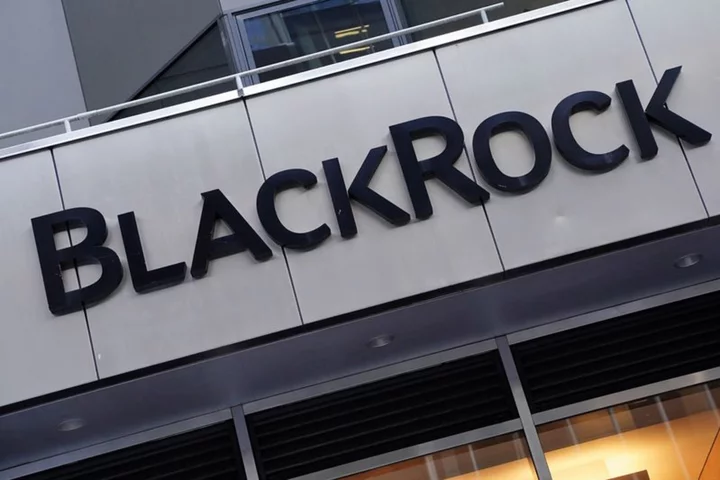(Reuters) -A U.S. congressional committee on China said asset management giant BlackRock and index provider MSCI were facilitating investments into blacklisted Chinese companies, underscoring how tense relations between the two countries are rippling out into corporate America.
The firms have facilitated the flow of American capital into companies the U.S. government had found guilty of fueling China's military advancement or human rights abuses, the House of Representatives' Select Committee on the Chinese Communist Party (CCP) said in letters dated Monday and seen by Reuters on Tuesday.
BlackRock denied any wrongdoing. "With all investments in China and markets around the world, BlackRock complies with all applicable U.S. government laws. We will continue engaging with the Select Committee directly on the issues raised," the firm said on Tuesday.
MSCI said on Tuesday it was "reviewing the inquiry" from the committee.
In emailed comments to Reuters, a spokesperson from China’s embassy said that “overstretching the concept of national security and politicizing economic, trade and investment issues runs counter to the principles of market economy and international trade rules.”
The probe is another example of the far-reaching effects of tensions between the U.S. and China on U.S. companies, as the world's two largest economies clash over a range of hot-button issues such as Taiwan and Russia's invasion of Ukraine.
Last month, China curbed exports of some metals widely used in the semiconductor industry, in a move it said was aimed at protecting national security. Analysts saw the move as a response to escalating efforts by Washington to rein in China's technological advances.
Republicans formed the Select Committee when they took control of the House in January, as part of an effort to convince Americans why they should care about competing with China. A hard line toward China is one of the few policies with bipartisan support in the deeply divided U.S. Congress.
The committee does not write legislation, but makes policy recommendations. It also has the power to subpoena executives and officials, something that it has not done until now.
But Representative Mike Gallagher, the committee's Republican chair, said in April he will issue subpoenas for executives who do not cooperate with its investigations.
"Companies are not going to disrupt their business model on their own. They're going to have to be ordered," said Leland Miller, chief executive officer at advisory firm China Beige Book.
The committee's action against BlackRock and MSCI was first reported by the Wall Street Journal.
An initial review by the committee had found the companies allow for investments into dozens of blacklisted companies.
"The true scale is likely much larger," the committee wrote.
Other asset managers, including Franklin Templeton, VanEck and WisdomTree, also have funds or exchanged-traded funds with Chinese assets, according to their websites. The firms did not immediately respond to requests for comment.
(Reporting by Niket Nishant and Jaiveer Singh Shekhawat in Bengaluru, Michael Martina and Don Durfee in Washington, and Carolina Mandl in New YorkEditing by Ira Iosebashvili, Jonathan Oatis and Matthew Lewis)









